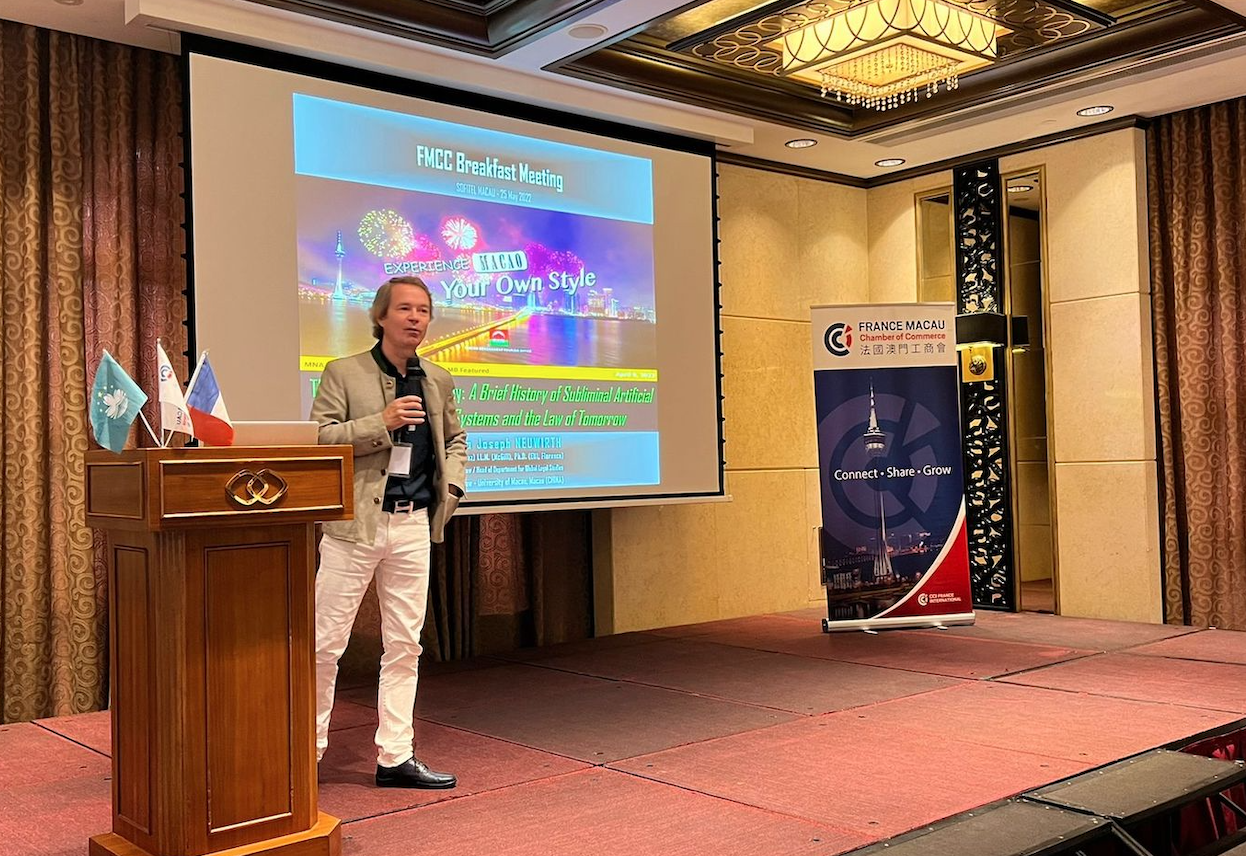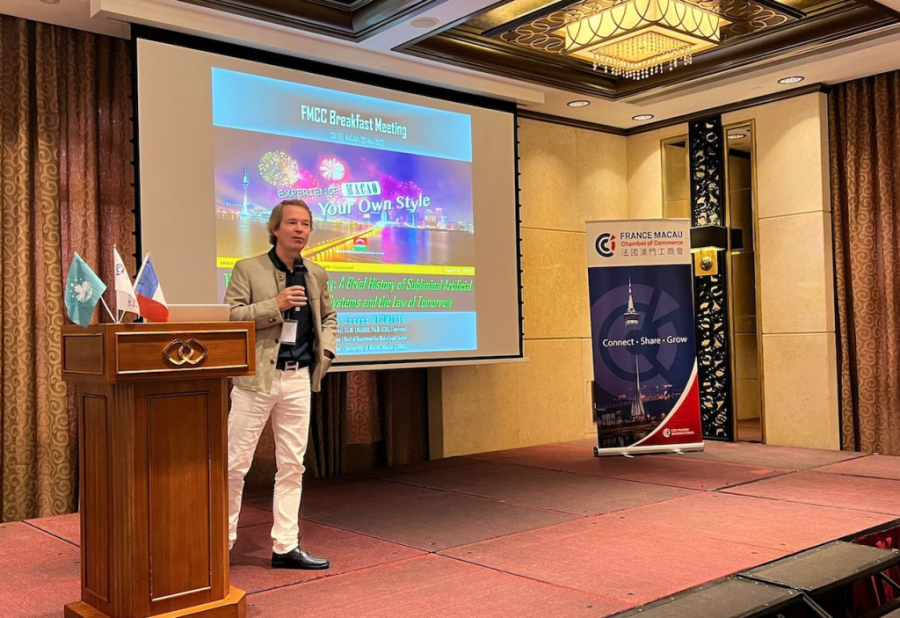Artificial intelligence (AI) may do as much harm as good, one of Macao’s top legal experts has warned.
“AI is not intelligent, and we should not treat it as something intelligent. As soon as we treat it as intelligent, we put it beyond us and then where do we humans stand in this?” Professor Rostam Josef Neuwirth, head of the Department of Global Legal Studies of the University of Macau (UM), told a breakfast meeting of the France Macau Chamber of Commerce yesterday.
“AI is helpful for us in many ways but it can also start to dominate us,” he added, pointing out that society may get addicted to the use of AI. “I think the risk is not that AI will become smarter than us and we will be delegating important decisions to it. The risk is that it is not smarter than us but we delegate so many decisions to it. And that, I’m afraid, in many ways, has already happened.”
Neuwirth underlined that AI was also prone to error. “Nowadays, if you upload a video with a copyrighted soundtrack then Facebook will delete it. This [technology] can also result with ancient paintings being classified as pornography. So, we need humans to oversee it … I think the human element is crucial.”
He also said the use of AI should be regulated to avoid the technology being used in a harmful way, especially “those AI technologies that use subliminal techniques beyond a person’s consciousness, which are capable of changing our behaviours or likely to cause some harm [to humans], physically or psychologically”.
He insisted: “Subliminal AI should be regulated not just locally but globally. A UNESCO text explicitly mentions that AI does not only have positive effects; there are also many negative and harmful consequences that may result from AI, especially on the human mind.”
And for that, there should be a consensus, Neuwirth added, about what is subliminal and what are considered subliminal techniques. “Where’s the threshold, because subliminal means it is below the threshold of our awareness.”
In Neuwirth’s opinion, Macao is currently focusing “more on the positive sides of it [AI]. How we can improve tourist services, traffic regulations, weather forecasts and so on. It is less focused on the negative sides.”
He warned: “[Considering] the potential impacts [of subliminal AI] on every aspect of our lives, I think Macao should also have a debate on what can be done if it is used in a harmful way. Everybody has to have a debate … we are exposed to this [subliminal AI] basically 24 hours a day. What you see on social media before you go to sleep may come back to you in your sleep and may affect what you do in the morning.”
Still, Neuwirth thinks that AI can also be a “source of hope”. “I think there’s always like a parallel movement of where the danger grows, that hope and remedies will appear and that is what we have to focus on.”
He added: “The real big question is what are we humans supposed to do. I hope we can find common ground to discuss these things [AI technologies], especially legally speaking nowadays …. [and] to also discuss this matter constructively. But they have to be discussed openly.”






